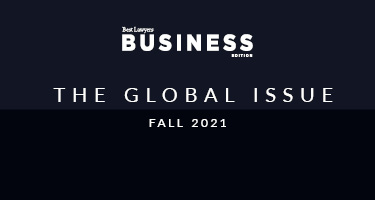A handful of principles are foundational to valuing commercial real estate. The best-known, of course, is “location, location, location.” For many properties, however, “foot traffic = revenue” is equally important.
Restaurants, retail spaces, offices and hotels all generally thrive on the continual congregation of people in desirable spaces. If tables or rooms do not turn over, or revolving doors cease revolving, revenue generation becomes much more difficult.
These concepts are not academic. They’re critical, for example, in determining rent. In many real estate subclasses, a site’s location and foot traffic will inform the revenue a tenant expects to generate, which in turn informs the rent it can pay—which in turn informs (or perhaps confirms) the rent a landlord expects to receive. That rent ultimately plays a key role in determining what a lender will lend and what a buyer will pay: in other words, the site’s value. A common commercial real estate structure sports a robust foundation of tenants fueled by foot traffic, with floors of freehold and mortgage capital built atop triple net leases.
But black swans ignore economic principles. When the COVID-19 pandemic landed in Canada in March 2020, governments reacted as elsewhere: Venues that encouraged social gatherings were largely shuttered, and those that remained open faced strict capacity limits. From a commercial real estate perspective, people staying at home en masse neuters both location and foot traffic, and fundamentally limits the ability of many tenants to generate enough revenue to pay rent—as well as the ability of landlords to service their mortgages. The structure faced a serious threat of becoming a house of cards (and perhaps would have but for unprecedented wage and rent support from governments).
The trial court found HBC had been a tenant at Hillcrest Mall since 1978, had paid its rent on time for 42 straight years and suffered an average decline in sales at Hillcrest Mall of 69% compared to before the pandemic."
It was not long before lawsuits around the world sought to answer a fundamental leasing question: In a triple net lease, with the tenant responsible for paying base rent and its share of the landlord’s operating costs without regard to any claim, setoff or deduction, who bears the risk of a black swan that shuts doors and prohibits foot traffic?
In Canada, Hudson’s Bay Company (HBC), the oldest corporation in the country and a major retailer, withheld rent under a number of its leases beginning in April 2020. In the case at hand (pertaining to Hillcrest Mall outside Toronto, where HBC is the anchor tenant), HBC ultimately brought its landlord, an affiliate of Oxford Properties Group (itself a pension fund landlord), to court in October 2020, alleging Oxford had defaulted under the lease. One day later, Oxford formally commenced proceedings to terminate the lease, forcing HBC to also seek “relief from forfeiture”—a judicial “shield,” not unlike bankruptcy laws, granting a tenant breathing room to cure a default and permitting continued possession of a premises pending a cure.
The main issue before the court was interpretation of Section 20 of Ontario’s Commercial Tenancies Act (CTA) codifying a tenant’s right to obtain relief from forfeiture:
Where a lessor is proceeding by action or otherwise to enforce a right of reentry or forfeiture . . . the lessee may . . . apply to the court for relief, and the court may grant such relief as, having regard to the proceeding and conduct of the parties under Section 19 and to all the other circumstances, the court thinks fit, and on such terms as to payment of rent, costs, expenses, damages, compensation, penalty or otherwise, including the granting of an injunction to restrain any like breach in the future as the court considers just. (Emphasis added.)
At trial, citing the broad language in Section 20 of the CTA, HBC argued the court not only had jurisdiction to stay an eviction notice, but in light of an unprecedented event, also had jurisdiction to grant rent abatement/forgiveness. HBC had, up to that point, been a model tenant: The trial court found HBC had been a tenant at Hillcrest Mall since 1978, had paid its rent on time for 42 straight years and suffered an average decline in sales at Hillcrest Mall of 69% compared to before the pandemic.
The trial court granted HBC relief from forfeiture. Critically, it also ordered rent deferrals (rather than forgiveness). The court imposed a phased rent repayment schedule whereby HBC was to pay partial rent until November 2021 and pay all arrears in March 2022 at an interest rate of prime plus 2%. None of this was provided for in HBC’s lease—and, in fact, the lease stipulated interest on arrears at prime plus 4%.
Both parties appealed to the Ontario Court of Appeal. HBC argued the trial court did not go far enough, and once again sought rent forgiveness, arguing Section 20 allows courts to “override the terms of a lease if justice so requires”—particularly when a “model tenant” is suffering the blunt effects of a pandemic. Oxford, for its part, argued the trial court went too far—that despite equitable language like “fit” and “just,” Section 20 does not include a right to grant rent deferrals (let alone rent forgiveness), nor any right to “rewrite the commercial bargain made by the parties to take into account unforeseen events.”
In a unanimous decision released this August 15, the Court of Appeal found in favor of Oxford. Relief from forfeiture, the court said, is a “specific and narrow” remedy that allows the tenant breathing room to put the lease in good standing. It “does not contemplate a recalibration of existing rights and obligations under the lease . . . to reflect what the court sees as a fair arrangement in light of unforeseen developments.” The court continued:
To order that a tenant is not required to pay the agreed-upon rent is not to grant relief from forfeiture of the lease but is to grant relief from compliance with the terms of the lease. Nor does . . . abatement or reduction of rent . . . preserve the lease. Instead, it alters a basic and fundamental term of the lease . . . I accept that the impact of COVID-19 and the restrictions on retail businesses that followed can be taken into account when setting the terms of relief for forfeiture . . . [It] may dictate a term allowing the tenant some additional time to bring itself into compliance with the lease. I do not, however, accept that the economic impact of COVID-19 can be taken as a basis for fundamentally altering the remedy from one of relief from forfeiture to one imposing new terms in the lease.
Although all back rent and arrears had already been paid by the time the appeal was argued, the Court of Appeal also rejected the trial court’s repayment schedule and recalibration of the interest rate on arrears, finding that any grace period to repay rent should have been limited to a reasonable amount of time for HBC to bring the lease into good standing.
This article is a limited review of an important decision, and it does not address lower-court rulings and orders at length. Nevertheless, the HBC case is a reminder from the Court of Appeal that a bargain struck is a bargain struck, and courts should resist using judicial discretion to alter contracts properly consummated between highly sophisticated entities. A precedent of imposing judicial rent deferrals under the auspices of relief from forfeiture could have caused considerable commercial uncertainty in the real estate world and upended a fundamental principle of commercial leasing: Triple net leases are typically carefree to the landlord except as otherwise set forth in the lease. Leasing law is often a labyrinth, but in this regard at least, and insofar as Ontario is concerned, black swans do not shift the allocation of risk to the tenant.
Tyler D’Angelo is a partner and co-head of the Real Estate Group at Goodmans LLP. His practice focuses on a wide range of real estate matters, including purchases, sales, financings, joint ventures, leases, construction and development agreements, and real estate aspects of larger commercial agreements.
































